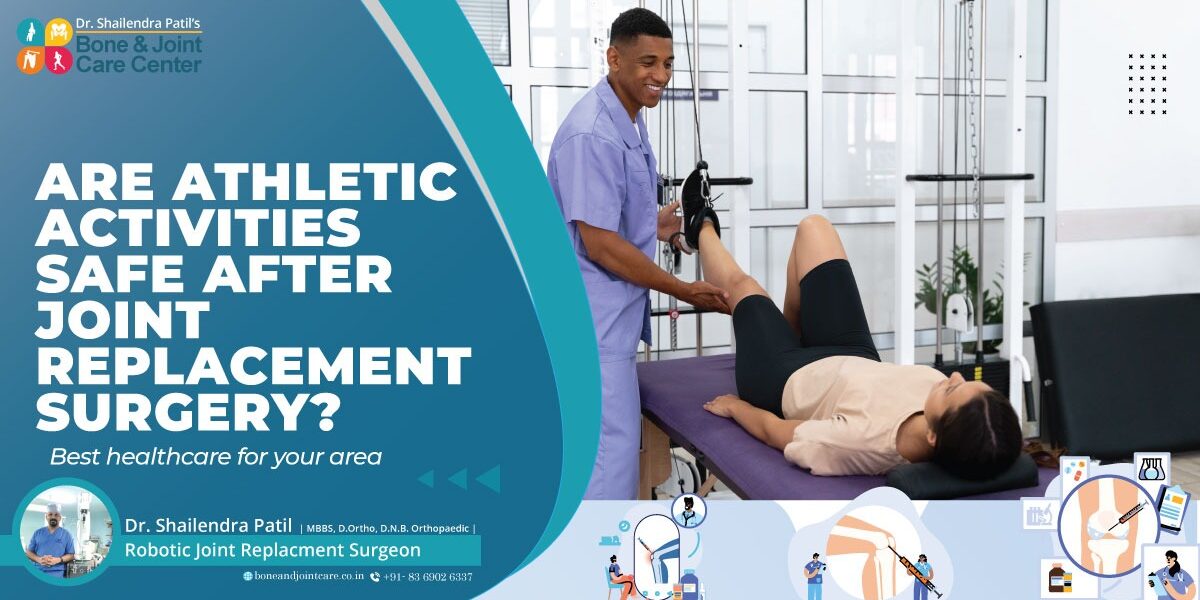A joint replacement surgery or arthroplasty is a procedure of removing damaged joint and replaces it with an artificial one. An example of are the knee, hip and shoulder. It is basically where two or more bones come together. The expert in the subject is usually doctor with an orthopaedic specialty. Sometimes, the surgeon will not remove the whole joint, but will only replace or fix the damaged parts.
According to a knee replacement surgeon in Thane, the prosthesis which is the artificial joint, can be metal, ceramic or high-quality plastic. The look of the joint and the functioning quality is known to be similar to the original joint and its movements.
Although this type of surgeries is possible in many parts of the body, Surgeons say that the most common types of arthroplasties are hip replacement and knee replacement. The Recovery time for arthroplasty varies and depends on the age and lifestyle of the person as well as the type of procedure and the joint replaced. Many decades ago, such procedures were considered extremely risky and people would usually travel out of country for it. But now, in places like Mumbai, joint or knee replacement surgery is one of the most common and successfully administered operations.
What happens after arthroplasty?
The number of days required for the preparation depends on the type of procedure. It may be that the patient go into the hospital on the same day of surgery or may be needed to get admitted to the hospital for a day or two. Talk to your provider about planning for recovery. The patient may also require assistance in doing basic things such as bathing, washing etc in the initial days.
After surgery, there could be some amount of pain. Here are some tips to keep in mind post-surgery.
- Avoid heavy physical activity. Take time to rest as you recover from surgery. The doctor will advise that any activity that strains the muscle or bones need to be avoided.
- Perform your physical activity or home exercise program as advised. They help in the recovery phase to restore functions and help protect the new joint.
- Elevate. Depending on the joint that has been replaced, the doctor may recommend keeping the joint elevated while you resting.
- Keep the incisions clean and protected. Follow your provider’s incision care instructions carefully. Keep the incision area hygienic and ask the doctor for dressing and care related queries.
- Take the pain medication. The doctor may recommend over-the-counter or prescription pain medication to help with the post-surgery pain and the drugs may also help to reduce swelling or prevent blood clots.
Can you Play Sports after a Joint replacement surgery?
Many people who had joint replacement surgery want to know about which activities are safe after their surgical procedure. Healthcare providers recommend specific sports be safe and at the same time there are those to avoid. Let us have a look at what are those.
- Cycling: Riding a bicycle is an excellent way to strengthen your new knee. It is advised to start with riding on a lower tension for an indoor cycle in the initial period.
- Swimming: Swimming can be started as soon as the stitches have been removed and the wound is healed.1
- Walking and Hiking: Walking is highly recommended for your recovery. Small amount of hiking and gradual running for runners are recommended.
- Aerobics-Style Exercises: It is good to keep the body in shape with strength and flexibility workouts that are low in impact.
- Low-Resistance Weightlifting: Activities like weightlifting keeps the muscles toned which enhances recovery and fitness.
- Low-Resistance Rowing: A good upper body workout. Rowing with the machine set to 90 degrees angle is known to be helpful.
Sports and Fitness Activities to Avoid.
Baseball
Basketball
Football
High-impact aerobics
Gymnastics
Jogging
Powerlifting
Patients who returned to a high-impact sport or heavy manual labour had the same differences in the durability of the implants as those who followed recommendations to avoid those activities. As per this data, the answer to the question would be a patient after a joint surgery can surely do physical activities or athletic activities but only those that enhances recovery and do not in any sense cause any damage during the recovery process. Research on these topics also emphasises on a strict and healthy diet along with the correct type of physical exercises. The combination of which is the key to full and fit recovery. The diet can consist of local products, the right protein and also genuine supplements.







